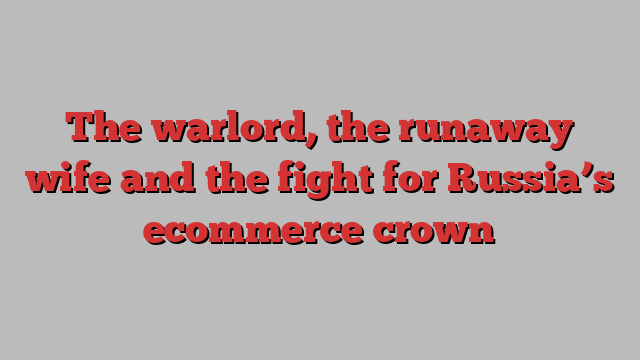
Russian ecommerce entrepreneur Vladislav Bakalchuk turned not to his country’s courts but a different kind of mediator to try and resolve a bitter shareholder dispute: Chechen warlord Ramzan Kadyrov.
In a video posted on social media last week, Bakalchuk was seen lamenting to Kadyrov that his wife and business partner Tatiana had “left home and fallen in with a bad bunch” in an attempt to squeeze him out of Wildberries, the online retailer the couple started in 2004.
Perched on a couch in a black hoodie, with dramatic stock music playing in the background, Kadyrov touted a previously undisclosed decade-long friendship with Bakalchuk and vowed he would “go all out” to help “return Tatiana Vladimirovna to the family and defend the legal business”.
“Devils” and “demons” had “destroyed a family with seven children” in an “open, brazen asset grab”, noted Kadyrov, a Kremlin ally known for his brutality. “They should give these assets back and your wife should come home,” he added, threatening that one of Bakalchuk’s rivals would “await his fate”.
Kadyrov’s intervention is highlighting the fast-deteriorating business environment in Russia since President Vladimir Putin’s full-scale invasion of Ukraine in February 2022 and the subsequent western economic sanctions.
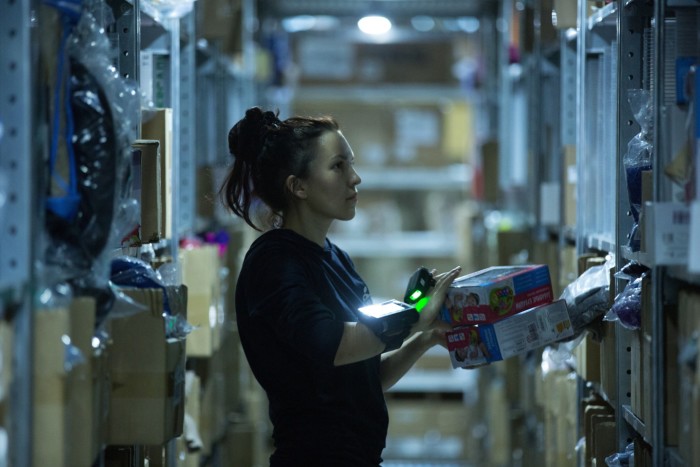
Russian businessmen long sought to avoid their domestic regulators by registering their companies and settling their disputes in the west. Cyprus was a prime registration destination and oligarchs liked to rely on London’s courts to defend their business interests.
No longer able to do so, Russian executives turn to figures such as Kadyrov and Putin himself to fend off predators.
“I don’t think [Bakalchuk] is the first person to go to Kadyrov for support like this,” said a sanctioned Russian businessman, adding the Chechen leader probably expected financial reward for his help.
Before the conflict the Bakalchuks were hailed as embodiments of entrepreneurial success in a country dominated by state-run businesses.
In two decades, they grew Wildberries from scratch to the country’s second-largest tech company, building a thriving online women’s clothing retailer that expanded to selling nearly everything else.
As the owner of nearly all the shares, Tatiana became Russia’s richest woman, with a fortune estimated at $7.4bn by Forbes before the dispute.
Since 2022, western sanctions have switched off exit valves for Russian business elites and their funds, just as the Kremlin’s enormous defence spending push has been fuelling growth. This has prompted the fiercest tussle over assets since the country’s wild capitalist decade that followed the Soviet Union’s collapse in the 1990s.
Russia has nationalised private businesses worth more than Rbs1tn ($11.6bn) and doled out control of several western companies’ local subsidiaries to associates of Kremlin allies.
Last year, Kadyrov’s nephew, Yakub Zakriev, was given control of Danone’s Russia business. Other figures linked to the Chechnya leader have taken over assets from departing western brands including Starbucks, Domino’s Pizza, and home supplies retailer OBI.
“This is what happens when you don’t have any real institutional environment left,” said Alexandra Prokopenko, a fellow at the Carnegie Russia Eurasia Center in Berlin. “Every institution has essentially been destroyed — private property, arbitration, and the courts. There’s a war going on and [the Kremlin] is redistributing the wealth.”
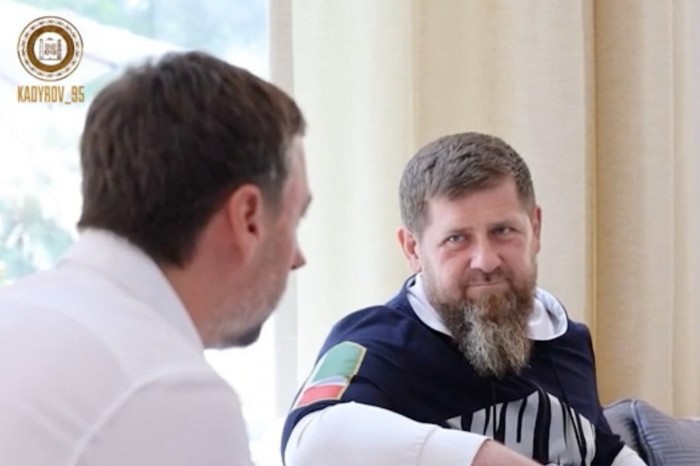
The Bakalchuks won plaudits for building Wildberries alongside a family friend, Sergei Anufriev, into Russia’s only consistently profitable online marketplace. Last year the company reported revenues of Rbs2.5tn ($29bn) — compared with Rbs1.75tn for its nearest rival Ozon — and profits of Rbs18.9bn.
Tatiana, who had the initial business idea of selling clothes to pregnant women online while on maternity leave, was chief executive. Vladislav stayed behind the scenes.
The rise of Wildberries stood out in a country where only a few businesses have grown to that scale without support from the Kremlin. The reclusive couple claimed they rejected offers from external investors.
“We told them we didn’t understand why we needed to take them in. We didn’t even work with banks at the start,” Tatiana Bakalchuk told the Financial Times in 2020.
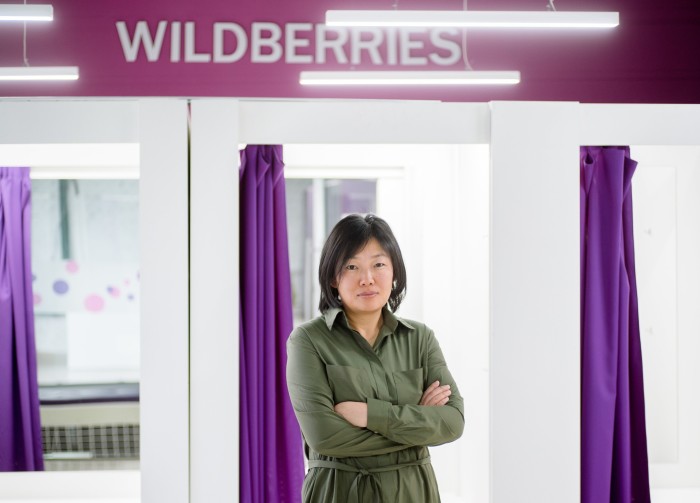
But in the early 2020s, she joined the board of the now-sanctioned state bank VTB (leaving it shortly after the 2022 invasion of Ukraine), and the leadership team of the All-Russia People’s Front, a Kremlin-run political movement.
Wildberries’ rise and ongoing family dispute suggested the company did enjoy informal protection from friends in high places, according to an investor in Russia’s retail sector. Such protection is known in the country as a krysha, or “roof”, a term borrowed from mafia jargon.
“Of course, they had some kind of krysha before this. You can’t grow that big without one,” the investor said. Kadyrov, who human rights groups have accused of ordering widespread torture and extrajudicial killings, “looks like the krysha of last resort”.
The spat started in June after Tatiana Bakalchuk and Robert Mirzoyan, managing director of billboard advertising group Russ Outdoor, wrote a letter to Putin requesting his blessing for a merger between their two companies.
The letter, first disclosed by Forbes, claimed the combination would create “the largest digital banking network and payment system for rouble settlements worldwide”, potentially reaching 5.8bn customers.
Giving Russia a “very strong competitor” to huge groups including Amazon, Alphabet, Alibaba and SoftBank, the merged company would boost Russia’s gross domestic product, the two CEOs insisted. On the side of the letter, Putin scribbled instructions to his top economic adviser, Maxim Oreshkin, in “support” of the merger, according to Forbes.
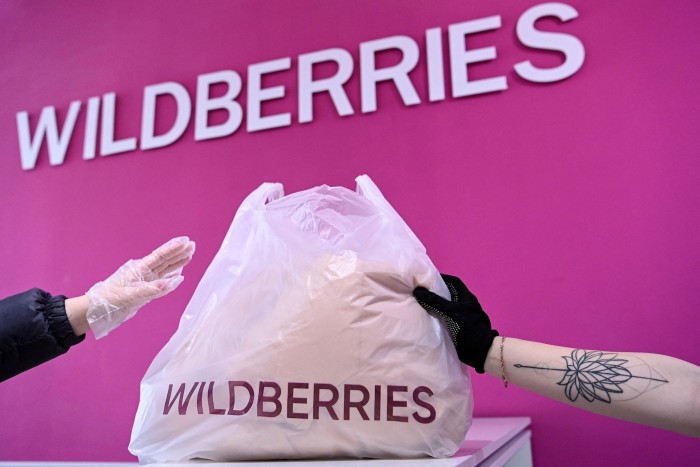
Last week the Kremlin confirmed the letter was genuine, but said it would not get involved in the founders’ dispute.
Russ Outdoor’s owners have since taken a 35 per cent stake in the new company even though their Rbs28bn annual sales are a fraction of those of Wildberries.
“Why the hell would a major, unleveraged business give a 30-per cent stake to some . . . goddam billboard maker,” said the Russian investor. “Clearly something was seriously wrong. There is no logical way to explain it.”
Vladislav Bakalchuk claimed his wife had struck the deal with Mirzoyan and his brother Levan behind his back, cutting him out of the company.
“They agreed it between themselves, went to see the president and then presented it to me as a fait accompli,” he told Russian business newspaper RBC last week. He said Levan Mirzoyan was “manipulating” Tatiana and had fired executives at Wildberries for opposing the merger.
Tatiana posted a picture of Vladislav at a meeting where he allegedly gave his approval. The dispute was “not an asset grab. It’s a divorce,” she wrote.
In another video this week, Vladislav enlisted the help of Timati, a rapper close to Kadyrov known for his hit “My best friend is President Putin”.
Neither Vladislav nor Tatiana Bakalchuk, who has since filed for divorce, responded to requests for comment. Russ Outdoor did not respond to a request for comment.
The merger was likely brought to Putin’s attention by a figure with direct access to the president, said Prokopenko at the Carnegie Russia Eurasia Center. “It’s part of a large system of informal practices that business and economic activity in general are based on in Russia,” she said.
Vladislav last week suggested he had run out of options. “This is what did me in — that I idealised my wife Tatiana and built my whole life around her,” he said.